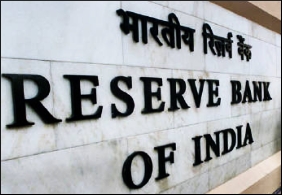|

|
Lend up to 50 percent of share value: RBI tells NBFCs
|
|

|
|
| Top Stories |
 |
|
|
|
SME Times News Bureau | 21 Aug, 2014
Non-banking finance companies (NBFC) have to maintain a loan-to-value ratio of 50 percent when they lend against shares, the Reserve Bank of India (RBI) stipulated Thursday.
In its circular, the RBI also stipulated that all NBFCs of Rs.100 crore and above should report on-line to the stock exchanges about information on shares pledged in their favour by borrowers for availing loans.
According to the RBI, currently lending against shares by NBFCs is not subject to specific instructions apart from the general prudential regulations.
Lending against shares could be in the normal course where shares are accepted as collateral or as part of their capital market operations.
NBFCs lend either by way of pledge of shares in their favour, transfer of shares or by obtaining a power of attorney on the demat accounts of borrowers.
The RBI said irrespective of the manner and purpose for which money is lent against shares, default by borrowers can and has in the past lead to offloading of shares in the market by the NBFCs thereby creating avoidable volatility in the market.
Certain other associated areas of concern relate to absence of adequate prior information to the stock exchanges on the shares held as pledge by NBFCs, probable overheating of the market, over-exposure by NBFCs to certain stocks and overleveraging of borrowers.
Further, while NBFCs in general are understood to have in place their own internal controls with regard to lending against shares including a loan-to-value ratio, there are anecdotal evidences of volatility in the capital market being the result of NBFCs offloading shares.
Hence the RBI has found it necessary to introduce a minimum set of guidelines on lending against shares while it does not result in unnecessary constraints to the needs of genuine borrowers.
The infrastructure for on-line reporting to the stock exchanges has been put in place. The exchanges may be approached for creation of user IDs, the RBI said.
|
|
|
| |
|
|
|
|
|
|
|
|
|
|
|
|
|
|
| |
| Customs Exchange Rates |
| Currency |
Import |
Export |
US Dollar
|
66.20
|
64.50 |
UK Pound
|
87.50
|
84.65 |
Euro
|
78.25
|
75.65 |
| Japanese
Yen |
58.85 |
56.85 |
| As on 13 Aug, 2022 |
|
|
| Daily Poll |
 |
 |
| PM Modi's recent US visit to redefine India-US bilateral relations |
|
|
|
|
|
| Commented Stories |
 |
|
|
|
|
|
| |
|